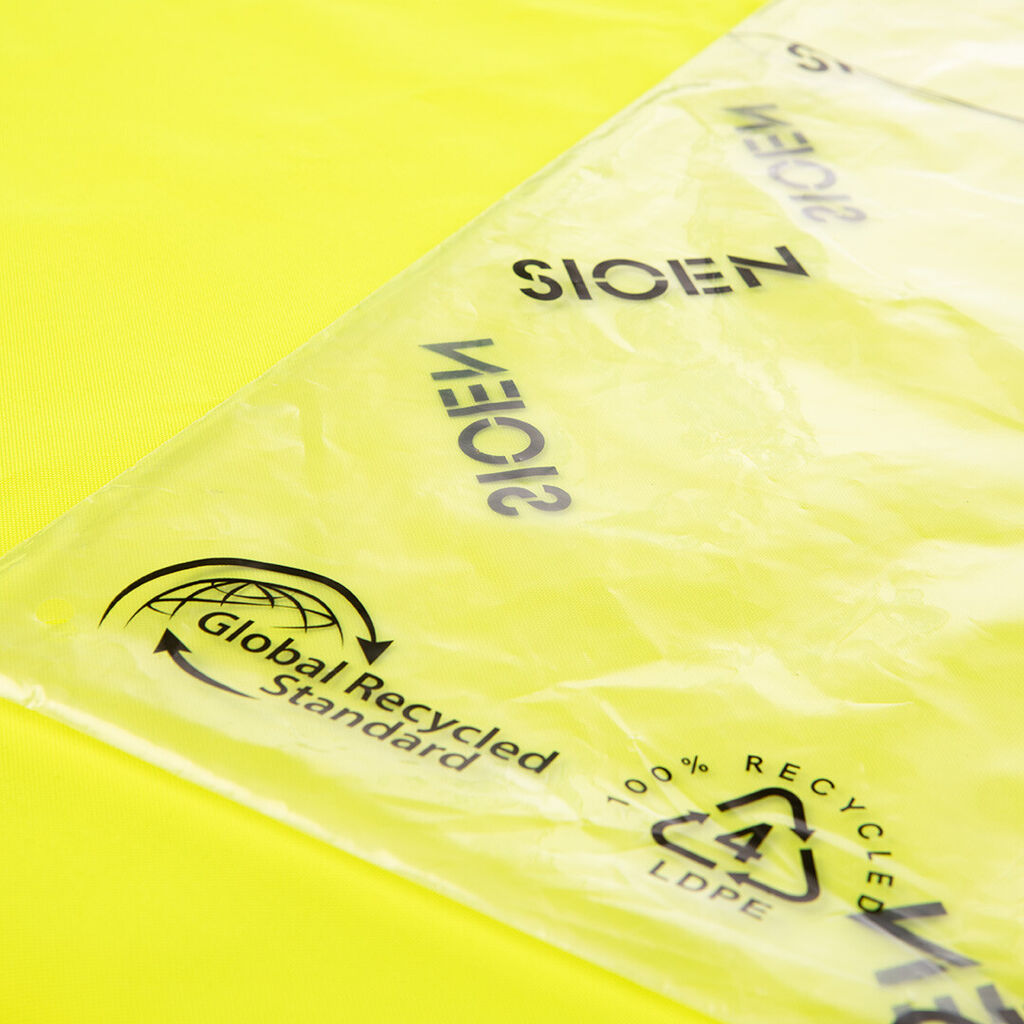Why we make the effort
At Sioen, protection is our mission – not only for the professionals who rely on our garments, but for the companies that equip them, and for the planet we share. Sustainability is not an optional extra; it is a responsibility we take seriously in every decision we make. Inspired by Sioen’s lead, we integrate environmental care into every stage of our product development, from design through to disposal.

Protection first, with sustainability in mind
We value sustainability highly ... but never at the expense of safety. Our first priority is to deliver protective garments that offer excellent protection to the wearer and the companies that equip them. This means that, in some cases, we choose virgin or non-recycled materials when they provide superior protection or performance. Every material, whether recycled or not, is tested extensively in our own laboratory to ensure it meets the highest safety and quality standards.

The Sustainable Sioen symbol
Garments developed with special attention to sustainability - whether through their materials, their design, or both - carry our Sustainable Sioen symbol. This quality label is our guarantee that the product meets defined sustainability criteria, making it easy to recognise designs in our collection with a reduced environmental impact.
Our approach: sustainable PPE from start to finish
Sustainable personal protective equipment (PPE) begins with smart choices. We design with efficiency in mind, selecting materials and processes that deliver the required protection while reducing environmental impact. This approach spans every stage of a garment’s life: from raw material selection, through design and use, to end of life.

Choosing responsible materials
We prioritize fabrics that combine safety performance with environmental responsibility. Examples include Tencel™ Lyocell, a 100% bio-cellulose fibre from sustainably sourced wood, and Repreve® polyester, made entirely from recycled plastics. By integrating such materials into our multinorm PPE, we lower our ecological footprint without compromising on wearer safety.
Also, Sioen PRO uses OEKO-TEX® STANDARD 100 throughout their product ranges, as a guarantee that the fabrics used in the garment have been tested for harmful substances and were evaluated to be completely harmless for human health.

Designing for a longer life
A garment’s lifespan is a key factor in its sustainability. We engineer our PPE to withstand more washes and drying cycles, and to maintain performance over time. In selected products, features such as high mechanical strength, excellent colour fastness, improved wash-resistant finishes, and easy-repair zip closures help make repairs simpler and extend the garment’s useful life.

Closing the loop through recycling
We believe a product’s environmental story should continue beyond its use. More and more of our designs are being developed with easier component separation in mind, making recycling simpler and more effective. This supports circularity and helps keep valuable resources in use for longer.

Reducing waste through packaging choices
Our commitment extends to the way our products are packaged. We use recycled poly bags and recycled cardboard, giving existing materials a second life and reducing packaging waste.
Ongoing commitment to better solutions
Sustainability is not a one-off achievement – it is a continuous process. For every new collection, we review materials and designs to find ways of improving environmental performance. The same approach applies when recertifying existing products, ensuring our garments evolve in step with advances in sustainable technologies and practices.






